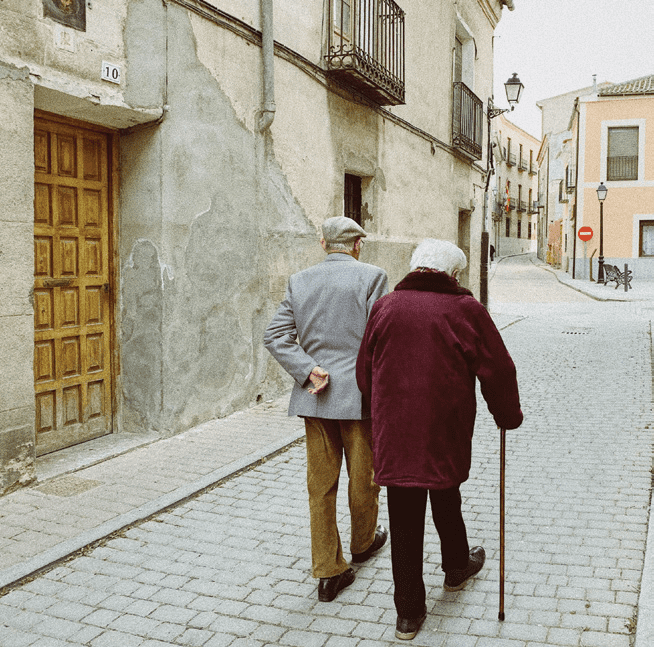The pandemic, with its thousands of deceased seniors, has somewhat curtailed a trend that had been established for several years: the increase in average life expectancy, which in 2019 was about 85.5 years for women and 81.34 years for men. Yet the months of COVID were enough to cause a reduction of 1.05 year for the former and 1.56 for the latter, a sign that our lives need very delicate balance to flow harmoniously and reach the years of seniority. When people talk about the over-70s age bracket, they often present a somewhat unrealistic narrative, showing people with white hair, in sportswear, with a racket in their hands and a smile on their lips: saddening and offending images, far removed from the lives of most people who are getting on in years, but also have to live with illnesses, loneliness, and sometimes, economic problems that make it difficult to live with dignity.

Not many elderly people have come to our Center for the Elderly and those who have come have often been brought by their children, concerned about some discomfort experienced by their loved ones. The stories we heard, however, made us reflect on the real experiences that advancing years bring with them, as in the case of Mrs. Angela, who came to us angry at life because of a difficult relationship with a rather aggressive and authoritarian husband some years her senior. When her children became independent, she decided to separate from her husband, resigned to remaining alone in her old age, but still free from that bond that she considered oppressive. So is the life of Sandro and Lisa, a couple who lost a daughter years ago. They have since lived with their grief by giving themselves to those around them, a life long and rich in relationships created by an innate ability to make friends with many people whom they have met over the years. They did all this as long as their strength allowed them; but after a while, they began to feel fragile, insecure, in need of help, and a little fearful about the future. The reassurance of family and friends was not enough to keep them calm. They feel indebted to those who accompany them to the grocery store or for visits to the doctor… There is a trace of sadness in their words, even if the exuberance that has always characterized them shows in little jokes or in their courage to re-start every day, taking care of each other, despite everything.
Also rich is the experience of Mrs. Agnese, widowed almost 30 years ago at just over 50 years of age. After losing her husband, she channeled all her strength into helping her children care for their grandchildren, dedicating herself to this task with great joy, enthusiasm, and experience. This being always inserted in the family, sometimes tiresome but lively, still helps her to feel useful, motivated to experiment with new cooking recipes, and make plans for the future. Mrs. Agnese came to us because she felt the need to confide some of her fears and thoughts that she is embarrassed to reveal to her family, but she knows that she is not alone. Certainly, arthritis with difficulties in walking and some heart problems reduce her autonomy, but she has learned to cope with these and manages to live with them, showing great resilience. Beautiful as well is the story of Giuseppe, a gentleman who came to us when he was widowed, at the age of 80. The initial disorientation and some major health problems he had made us fear for his life. However, his enthusiasm, his desire to do things, and an innate artistic vein, allowed him to live this stage of life productively through painting and writing poetry. Thus, he is able to inject his headstrong optimism into the things he passionately enjoys doing.
We have seen how important relationships are, at any age; how intergenerational relationships are generative, allowing the elderly to be able to communicate their stories and life experiences, and how fundamental it is for young people to listen to these stories that open their horizons by inserting them into History.
Aging well requires good physical and mental health, and prevention is important, but it also requires healthy relationships and the ability to adapt to the inevitable changes that life brings. What is needed is the wisdom that does not seek distraction or youthfulness, but is capable of seizing each new day as a gift. Equally important, however, is that no elderly person be left alone; loneliness is the bearer of death, and a society that leaves the elderly alone withers and dies, a little at a time.
Daniela Notarfonso




